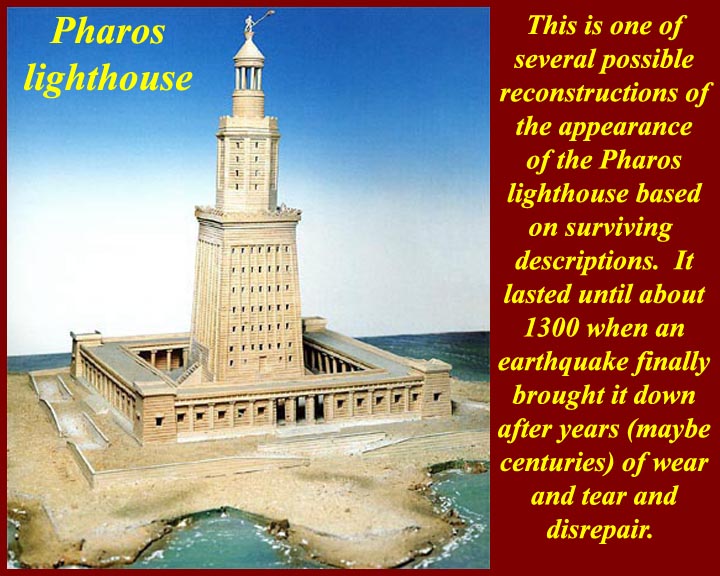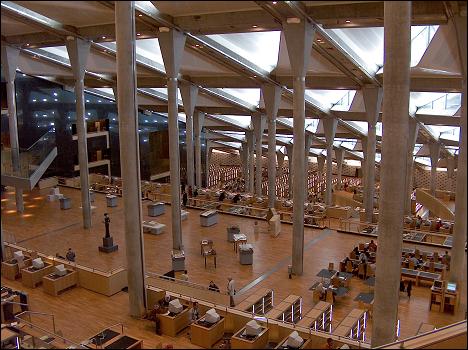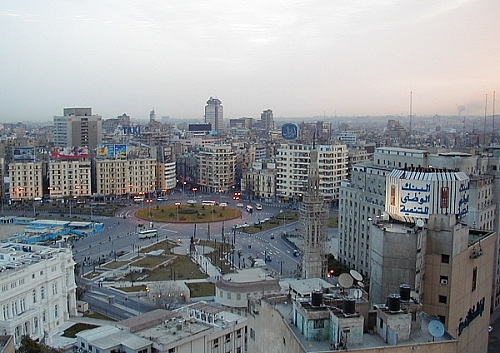Alexandria with a population of 4.1 million, is the second-largest city in Egypt, and is the country's largest seaport, serving about 80% of Egypt's imports and exports. Alexandria is also an important tourist resort.
Alexandria extends about 32 km (20 miles) along the coast of the Mediterranean sea in north-central Egypt. It is home to the Bibliotheca Alexandrina (the new Library of Alexandria), and is an important industrial center because of its natural gas and oil pipelines from Suez, another city in Egypt. Alexandria was also an important trading post between Europe and Asia, because it profited from the easy overland connection between the Mediterranean Sea and the Red Sea.
In ancient times, Alexandria was one of the most famous cities in the world. It was founded around a small pharaonic town c. 334 BC by Alexander the Great. It remained Egypt's capital for nearly a thousand years, until the Muslim conquest of Egypt in 641 AD when a new capital was founded at Fustat (Fustat was later absorbed into Cairo).
Alexandria was known for the Lighthouse of Alexandria (one of the Seven Wonders of the Ancient World), the Library of Alexandria (the largest library in the ancient world) and the Catacombs of Kom el Shoqafa (one of the Seven Wonders of the Middle Ages). Ongoing maritime archaeology in the harbor of Alexandria, which began in 1994, is revealing details of Alexandria both before the arrival of Alexander, when a city named Rhakotis existed there, and during the Ptolemaic dynasty.


























